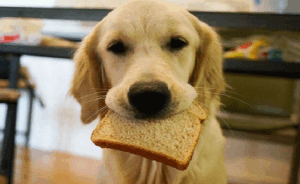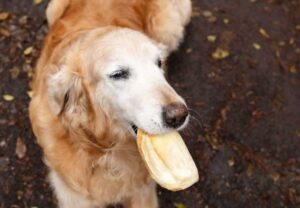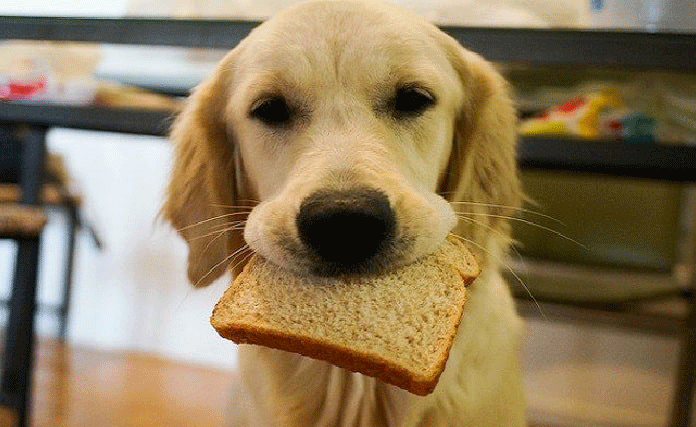Dogs can eat bread but it is not a necessary or healthy part of their diet. bread lack the essential nutrients that dogs need to stay healthy and feeding your dog too much bread can lead to a range of negative healthy effects. weight gain and obesity. bread is high in calories and carbohydrates which can contribute to weight gain and obesity in dogs.
This can increase the risk of various health problems including diabetes arthritis and heart disease. some dogs may experience digestive issues such as constipation or diarrhea after eating bread. this is because bread can be difficult for dogs to digest and may not provide the fiber and other nutrients that dogs need to maintain a health gut.

Introduction
Dogs and bread a classic combination that may seem harmless but is it really as a responsible dog owner it essential to know the facts before sharing your loaf with your furry friend. bread a staple in many human households can be a tasty treat for dogs but it crucial to understand the potential risks and limitations involved. we delve into the world of dogs and bread exploring the pros and cons of feeding bread to your dogs. from the nutritional value of bread to the potential health risks we’ll cover it all. whether you’re a seasoned dogs owner or a newcome to the world of canine companionship this information will help you make informed decisions about sharing bread with your dogs.
Small amounts of plain white or wheat bread are generally considered safe for dogs to eat?
Only offer small amounts about 1-2 slices or 1-2 inches of bread as an occasional treat. bread should not make up more than 10% of your dogs daily calorie intake. stick to pain white or wheat bread. avoid bread with added ingredients like nuts seeds chocolate chips or dried fruits as these can be toxic to dogs. ensure the bread doesn’t contain harmful ingredients like xylitol onions garlic or raisins. monitor your dog for signs of allergy or intolerance such as itching digestive issues or ear infections.
Bread lacks essential nutrients and may cause weight gain and obesity if fed in excess?
Yes that correct bread particularly white bread is low in essential nutrients and high in calories carbohydrates and empty calories. if fed in excess it can lead to weight gain and obesity consuming more calories than needed can result in weight gain and bread high calorie and carb content can contribute to this. nutrient imbalance bread lacks vital nutrients like protein health fats fiber vitamins and minerals leading to an imbalanced diet if relied upon too heavily.
Some types of bread are toxic to dogs including those containing raisins grapes chocolate chips onions garlic and xylitol?
Yes that correct some types of bread can be toxic to dogs due to the presence of harmful ingredients. grapes and raisins have been known to cause kidney failure in dogs and it best to avoid them altogether. chocolate contains theobromine a stimulant that can be toxic to dogs. the darker the chocolate the more toxic it is. onions and garlic belong to the allium family and contain a compound that can damage a dog red blood cells leading to anemia.

Bread dough can be dangerous to dogs due to risk of alcohol poisoning and in the stomach?
Alcohol poisoning yeast in the dough ferment the sugars producing carbon dioxide gas and alcohol ethanol. if a dog ingest bread dough the yeast continues to ferment in their stomach. releasing more alcohol. this can lead to alcohol poisoning causing symptoms like- vomiting-diarrhea- tremors- weakness- seizures- even death the yeast in the dough continues to rise in the warm moist environment of the dogs stomach.
Some dogs may have allergies or intolerances to certain ingredients in bread?
Gluten some dogs have gluten intolerance or sensitivity which can lead to digestive issue like diarrhea vomiting and abdominal pain. yeast can cause allergic reactions in dogs leading to skin issues like itching redness and hair loss. some dogs may have hair allergies or sensitivities which can cause skin issues digestive problems and ear infections. some bread recipes include dairy products like butter milk or whey which can be problematic for dogs with lactose intolerance or dairy allergies.
It is essential to consult with a veterinarian before making any changes to your dogs diet?
Veterinarians ensure that your dogs diet meets their nutritional needs avoiding deficiencies or excesses that can harm health. vets help identify potential allergens or sensitivities preventing adverse reactions or skin issues. veterinarians consider pre-existing health condition such as kidney disease or food allergies when recommending dietary changes. vets tailor dietary advice to your dogs life stage whether puppy adult or senor ensuring appropriate nutrition for their developmental needs.
Those with gluten intolerance or celiac disease should avoid bread containing gluten?
Gluten a protein found in wheat barley and rye can case an immune response in people with gluten intolerance or celiac disease. this response can lead to inflammation and damage in the small intestine impairing nutrient absorption and triggering various symptoms. celiac disease is an autoimmune disorder that cause the immune system to react to gluten leading to inflammation and damage in the small intestine.

Those with diabetes or weight concerns should be mindful of the carbohydrates content in bread?
Bread is a significant source of carbohydrates which can impact blood sugar levels and weight management. carbohydrates are broken down into glucose causing blood sugar levels to rise this can be a concern for individuals with diabetes as they need to manage their blood sugar levels to prevent complications. choosing bread with a lower carbohydrates content can help regulate blood sugar levels. whole grain bread with fiber and protein can help slow down carbohydrate digestion reducing the impact on blood sugar levels. monitoring carbohydrate intake and adjusting insulin doses accordingly is crucial.
It is essential to choose whole grain or whole wheat bread for more nutritional benefits?
Whole grains including whole wheat contain the entire grain kernel comprising they retain natural nutrients fiber and antioxidants offering several benefits. higher fiber content whole grains contain more fiber which aids digestion promotes satiety and supports healthy blood sugar levels. antioxidants and phytochemicals whole grains are rich in antioxidant and phytochemicals which help protect against chronic diseases like heart diseases diabetes and certain cancers.

Conclusion
While bread is not a necessary component of a dogs diet it can be a safe treat in moderation if chosen wisely. choose plain whole grain bread without added ingredients like nuts seeds or chocolate. avoid bread with toxic ingredients like raisins grapes onions garlic or xylitol. be cautious of bread dough as it can rise in the stomach and cause pain or alcohol poisoning. consider your dog individual needs allergies and health condition before sharing bread. always prioritize a balanced nutritionally complete dog food as main staple of their diet.
